MercoPress. South Atlantic News Agency
Latin America
-
Saturday, November 7th 2009 - 07:14 UTC
“Non aggression pact” to end secrecy of military agreements in South America
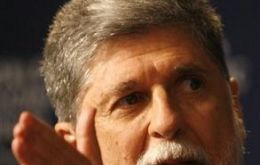
Brazilian diplomacy is working on a “non aggression” pact which it will propose to Colombia and other regional governments following on the military agreement signed by Bogotá with Washington and which has caused much concern in Brazil according to the Sao Paulo press.
-
Friday, November 6th 2009 - 10:38 UTC
US will recognize Honduras election with or without reinstated Zelaya

United States will recognize the Honduran elections results regardless of whether former President Manuel Zelaya is returned to office and regardless of whether the vote on reinstatement takes place before or after November 29th, according to Republican Senator Jim DeMint who claims he was given guarantees to that effect by the US State Department.
-
Friday, November 6th 2009 - 04:19 UTC
Caracas short or power and water for next six months

Venezuelan president Hugo Chavez warned he will go after all those industries and factories private or government managed, that waste power and/or water.
-
Friday, November 6th 2009 - 03:54 UTC
Zelaya “must be reinstated” before November 29th elections
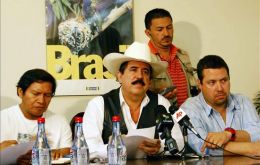
Brazil is demanding that ousted Honduran president Manuel Zelaya be reinstated before the scheduled presidential election of November 29th, according to government sources quoted in the Sao Paulo and Brasilia press.
-
Friday, November 6th 2009 - 03:36 UTC
Magallanes Region economy contracted 1.3% from 2004 to 2008

Magallanes Region, in the extreme south of Chile, economic performance from 2004 to 2008 has been one of the worst of the country according to the regional report from Chile’s Central Bank. The region experienced in the period a 1.3% GDP contraction, the only negative result of all Chilean regions.
-
Thursday, November 5th 2009 - 13:07 UTC
New row over Colombia-US accord
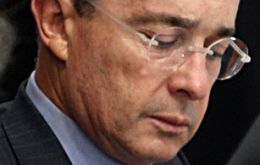
Colombian opposition groups have reacted angrily after details of a controversial military deal with the US were made public.
-
Thursday, November 5th 2009 - 07:21 UTC
US dollar falls to lowest rate in a year vis-à-vis the Chilean Peso

The US dollar fell to an exchange rate of Chilean Pesos 528 on Tuesday, the lowest rate since September 2008, a tendency confirmed in Wednesday’s trading. Since the beginning of 2009, the dollar has fallen 113 Chilean pesos.
-
Thursday, November 5th 2009 - 06:30 UTC
The Secret of Prosperity is Freedom

By Michael Magan (*)
On economic policy, Latin American leaders face a basic choice: Adopt old style government-heavy populism championed by Venezuelan president Hugo Chavez, or the market-friendly reforms instituted in countries like Brazil, Peru, and Chile? -
Wednesday, November 4th 2009 - 13:21 UTC
Honduran presidential hopefuls sign democracy and governance pact
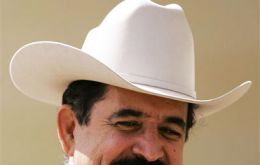
Four of the six candidates for Honduras presidential election next November 29th signed Tuesday the social pact to strengthen democracy, peace and freedom, one of several steps agreed last week to end the four months institutional crisis of the Central American country, according to political sources.
-
Wednesday, November 4th 2009 - 13:18 UTC
Peruvian regional initiative to cut military expenditure and fight poverty
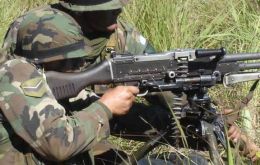
Peru launched in Argentina its peace, security and cooperation initiative to reduce arms purchases in the region and to lower expenditure on military hardware.
